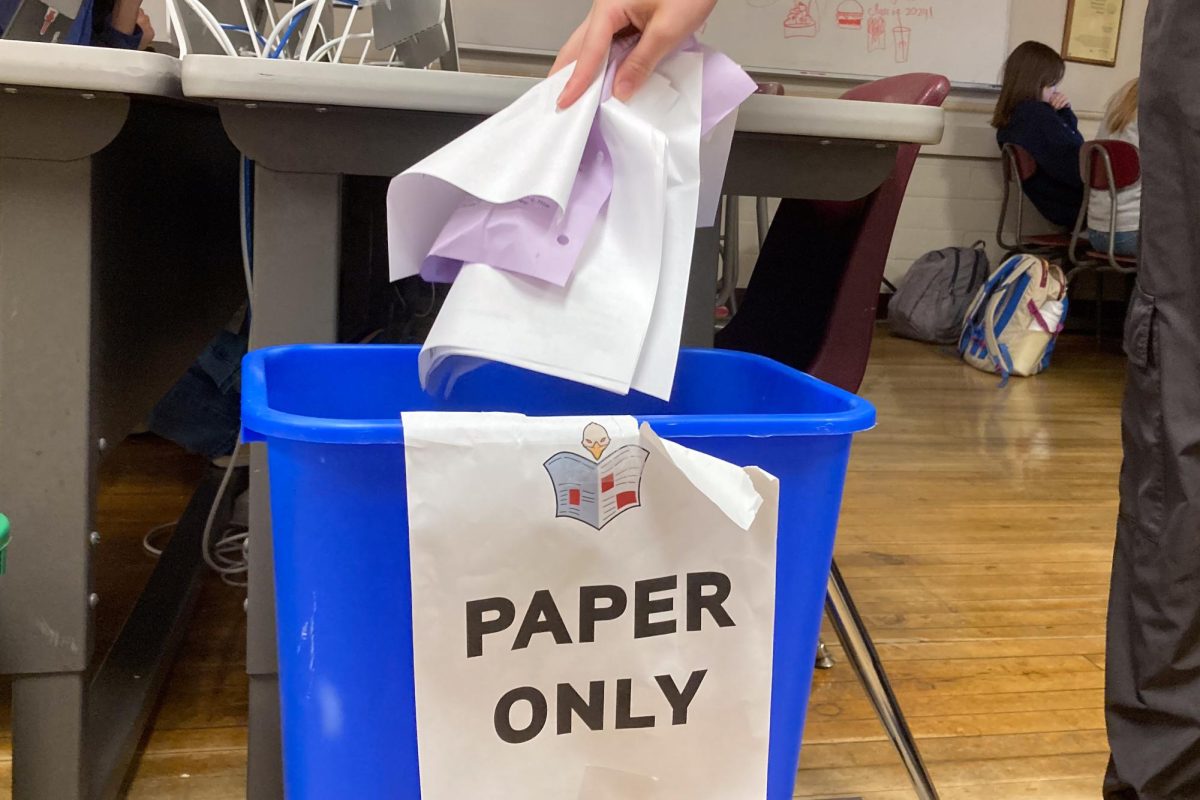There’s no recycling at the school that leads. At least, not right now.
In prior years, recycling was run by the special education program. But because of administrative changes and transitions, the teachers who previously ran the recycling program are no longer at City.
“On a certain day, [teachers] would put out their recycling,” Ms. Lestina, the sponsor of Environmental Club and AP Environmental teacher at City, explained the process from last year. “And then special education students would walk around with a para, and they would then pick up the bins and dump them into the main, central bin, and then take them out back.”
Because there hasn’t been a major group working on the recycling since last year, everything thrown in recycling bins around the building has gone directly into the trash, unless teachers have their own individual plans.
Now, Environmental Club has a plan for reintroducing recycling.
Environmental Club is an organization at City that focuses on, well, the environment. Last year, their projects included a composting project and Earth Day event. This year, they have continued to expand their composting initiative by taking it district-wide and talking to elementary school students about composting. Their newest project is to revamp the recycling problem.
Siena Brown, co-president of Environmental Club, explained what the recycling program will look like.
“We’re going to have students come take out the recycling, and they’re going to be getting Silver Cord hours for that,” Brown said. “It does take longer than the composting, which takes about 15 minutes. This will take 15 to 30 minutes.”
Like when the special education program ran the recycling program, teachers will put out their recycling bins once or twice a week. Pairs of volunteers will be assigned one floor to walk around and collect the recycling. Afterwards, they will dump them in the large recycling dumpster behind the school. Students who help out will get snacks and hot chocolate.
“It took us a while to get people to start volunteering [to take out the compost]. But now we kind of know what kids want [in exchange] for volunteering,” Brown said. When Environmental Club started offering food for volunteers, they had a massive influx of students signing up to take out the compost.
“Hopefully, kids are going to be enticed by the idea of getting some Silver Cord hours, having free snacks if they want it, and just kind of doing their part of their school community.” Brown said.
The special education program, which used to run the recycling program before transitions in leadership, will continue to partner up with Environmental Club and student volunteers to work with the recycling.
“There was no major group that was in charge of the recycling,” Ms. Lestina said.“So now, hopefully, we’ll have a program that will be in place within the next couple of weeks.”
Soon, Environmental Club will be sending out a sign-up sheet to the entire school for volunteering to take out the recycling. Anyone can sign up, and you earn an hour of Silver Cord hours for less than an hour’s worth of work.































